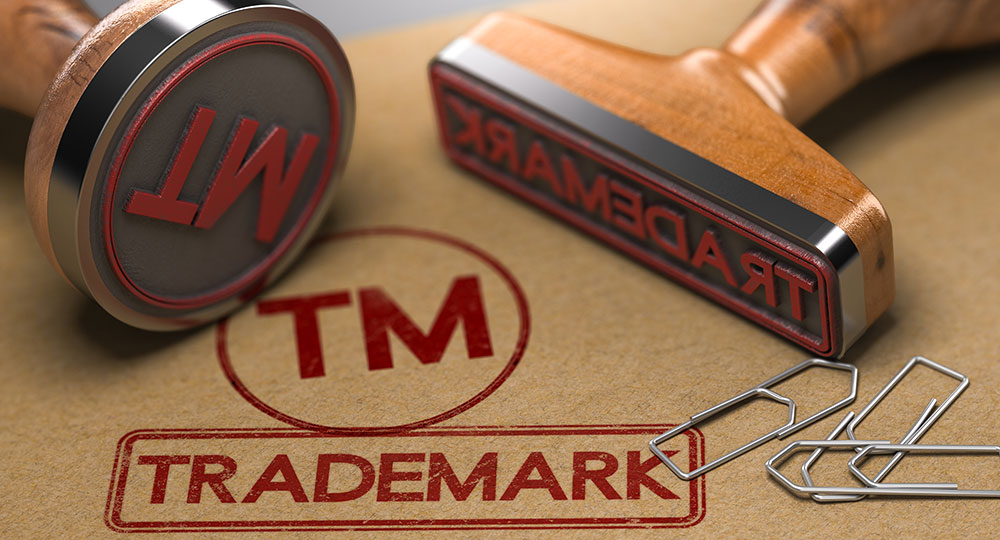Concept of Intellectual Property
Intellectual property (IP) rights are any rights associated with intangible assets owned by a person or company. Intangible assets refer to non-physical property, including the right of ownership in intellectual property. It is a legal concept that grants exclusive rights to the creator or owner of intangible assets.
There are four significant types of protections for IP:
- Copyright – This branch of IP laws protects creative works, including writing, drawing, software, architectural drawings, articles, blog posts, graphic designs, and movies.
- Trademark – This protection is given to original words, symbols, and designs representing your business.
- Patent – Creators of product or process inventions are granted protection under the IP laws to secure their control over the use of their ideas.
- Trade Secret – Trade secret laws protect unique formulas, recipes, programs, or techniques you develop.
Definition of trademarks
Trademarks are a specific form of intellectual property that protects distinctive signs, symbols, or logos to identify and distinguish goods or services in the marketplace.
Understanding the importance of trademark registration and the necessary steps involved is crucial for any business intending to make its mark in Malaysia. This article provides an authoritative and educational guide on the process and significance of registering trademarks in Malaysia.
Law governing trademarks in Malaysia
In Malaysia, trademark registration is regulated by the Trademarks Act 2019 (“TA 2019). The Ministry of Trade and Affairs incorporated the Intellectual Property Corporation of Malaysia (MyIPO) to develop and manage the IP system in Malaysia.
MyIPO, as a government agency, is tasked to do the following:
- Ensure intellectual property owners have legal protection for their creations and inventions.
- Review applications to ensure that they meet the relevant laws and regulations
- Maintains a trademark registry, a database that contains information on registered trademarks in Malaysia
To register a Malaysian trademark, an applicant can apply via the official portal of the Intellectual Property Corporation of Malaysia (MyIPO).
Description of Classification of Goods and Services in Malaysia
According to the MyIPO portal, 45 distinct classifications of goods and services may be trademarked.
- Classes 1 to 34 cover trademarks applicable to goods and commodities.
- Classes 35 to 45 cover trademarks applicable to various services.
Registration of a trademark in a specific class confers exclusive rights and protection only within that class. Therefore, trademark owners must register their marks in all applicable classes to protect their rights.
Before applying to trademark your goods or services, it is essential to note that the intended goods or services to be trademarked must be distinguishable, distinctive, and publicly recognised.
What cannot be trademarked?
In Malaysia, certain goods and services cannot be trademarked. These include:
(1) Generic or descriptive terms that are commonly used to describe the product or service itself.
For example, if you are offering a cleaning service, you cannot trademark the term “cleaning service” as it is a descriptive term that directly describes the nature of your business. Trademarks are meant to distinguish your goods or services from others, so generic or descriptive terms cannot be protected as trademarks.
(2) Trademarks contrary to public order or morality are also prohibited from registration.
This includes trademarks that are offensive, vulgar, or promote illegal activities. It is crucial to consider Malaysia’s cultural and social norms when choosing a trademark to avoid potential issues. The Malaysian government has guidelines to ensure that trademarks do not violate public order or morality.
This means that trademarks that are offensive or disrespectful towards any religion or culture will not be accepted for registration. The purpose of trademark registration is to create a positive and distinctive brand image, so any trademarks that may cause offence or harm to society are not allowed.
Why you should register your trademark
(1) Trademark holder has exclusive right over their goods or services
Registered trademark owners have the exclusive right to use their marks in commercial transactions. They also have the legal standing to file an action for trademark infringement against any third party who uses their marks without permission. This helps to protect the company’s brand integrity, ensures that consumers are not misled or deceived by counterfeit or inferior products, and prevents others from using similar marks that could confuse consumers.
(2) Trademark registration is a solid proof of legal evidence
The registration certificate that the MyIPO presents as evidence of trademark ownership is considered to be prima facie evidence. This means the registered owner is presumed to be the trademark’s rightful owner unless proven otherwise.
In legal proceedings, a registered trademark can be used as evidence to demonstrate the ownership and validity of the trademark. A certificate of registration is a necessary document that must be shown to validate the ownership of products that are being shipped to other nations.
Step by step to register a trademark in Malaysia
(1) Search
Before submitting a trademark application, applicants must diligently search for any existing similar trademarks on the goods or services they intend to trademark to avoid duplication. This search can also assist them in comprehending why a trademark application was denied or detecting whether they are about to infringe on another party’s trademark.
(2) Application
MyIPO allows applying for several trademark classes at once, saving time and cost of individual applications.
Applicants must submit five TM5 Forms, which can be found on the MyIPO website, and pay the prescribed fees. In these mandated forms, the applicant must indicate the following requirements:
- Applicant’s name and address;
- If the applicant is a business or corporation, they must state their legal entity type;
- Specifications of the trademark: if it involves elements, a drawing must also be given;
- A list of the applicant’s goods and services and
- The class under which the applicant’s goods and services fall
(3) Examination
After applying, a Registrar will analyse it based on absolute and relative factors to evaluate if it is complete and to spot any inaccuracies.
Absolute factors refer to the inherent qualities of the trademark itself, while relative factors involve the comparison of the trademark with existing trademarks or prior rights of others.
The investigation will consider the following:
- Formalities;
- Deceptiveness;
- Clarity;
- Classification;
- Conflict with prior registration, if any, and
- Whether limitations or disclaimers must be imposed
If there is an issue with the application, the Registrar will send the applicant an official notice detailing the reason for refusal. The applicant can respond promptly to any objections the Registrar raises; if he fails, the application will be presumed withdrawn.
Per Section 29(5) of TA 2019, applicants can respond to objections through application amendments to meet the Registrar’s conditions or provide more information or evidence for their application.
(4) Publication
If the Registrar’s examination is completed or the applicant successfully responds to the objections made, the trademark application will be published in the Gazette for two months. At this point, the applicant must file the TM3 Form to register the trademark in the Gazette.
(5) Opposition
The publication of the application in the Gazette permits any interested parties to dispute the trademark for various reasons. Before lodging an official complaint to MyIPO through a Notice of Opposition, parties that intend to oppose must contact the applicant to resolve the dispute.
After receiving the Notice of Opposition, the applicant has two months to submit a response. Without a reply, the trademark application will be considered abandoned.
Suppose the applicant submits a counter statement and supporting documentation, the opponent is given an additional two months to answer the application, and the authorities will make a judgment accordingly.
(6) Registration
According to Section 36(1) of TA 2019, the trademark will be registered if no opposition has been made, if the dispute between the applicant and the opponent has been settled, or if an opposition has been filed, and the Registrar has ruled in favour of the applicant.
The Registrar will award a Certificate of Registration bearing the Registrar’s official seal upon registration. The complete trademark registration process typically takes between twelve and twenty-four months. Once the registration certificate is issued, the applicant is deemed the legal owner of the trademark.
Lifespan of a trademark
The registration of a trademark in Malaysia lasts for 10 years. This means that once a trademark is successfully registered, the owner has exclusive rights to use that trademark for 10 years from the date of registration.
Renewal of a trademark
After the initial 10-year period, the trademark registration can be renewed indefinitely for subsequent periods of 10 years each. Failure to renew the registration may result in losing exclusive rights and opening the door for others to use the mark.
- Renewal of trademark registration in Malaysia requires submitting a renewal application along with the prescribed fee.
- It is important to note that the renewal process must be completed before the expiry of the current registration to maintain the protection and rights associated with the trademark.
Conclusion
In conclusion, although not legally mandatory, registering trademarks in Malaysia is an essential and prudent step for any business owner seeking to establish its brand identity and enhance its market presence. An officially registered trademark:
- Provides the legal assurance of exclusive rights to the trademarked symbol or sign
- Serves as prima facie evidence in court cases, thus providing a streamlined defence strategy
- Constitutes an intangible asset that can be leveraged in various business dealings.



